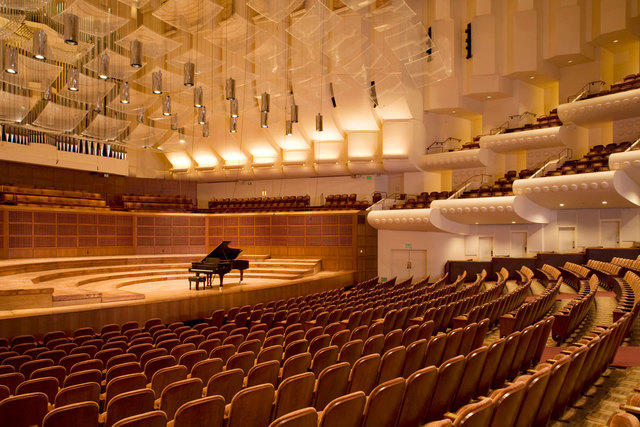SanFran Symphony wants to cut its chorus by 80%
OrchestrasAlarming news from AGMA, the union representing chorus singers in San Francisco.
We, the members of the San Francisco Symphony Chorus, write to you with a deep sense of pride in our collective accomplishments and a sincere concern for the future of our cherished institution. The 32 paid singers of the Chorus are members of the American Guild of Musical Artists (AGMA), whose collective bargaining agreement expires at the end of July. The rest of our ensemble is composed of well over 120 unpaid singers who give their time and significant talents to the Symphony Chorus. Given the recent public discussions about the financial challenges faced by the Symphony, we feel compelled to share information, offer our perspective, and seek your support.
San Francisco Symphony management has proposed slashing the San Francisco Symphony Chorus budget by 80%. You read that correctly. 80%. The chorus accounts for a little over 1% of the overall budget and is vital in attracting audiences and donors. Simply put, ticket sales are higher when we are singing. The financial rationale for such severe cuts simply doesn’t add up. The Symphony has informed us that it projects a $12.5 million budget deficit for the next fiscal year. Putting aside the assumption that this deficit must be solved only through cuts rather than improved fundraising or patron development, cutting $800,000 of the Chorus’s roughly $1 million cost won’t cover this. Cutting 80% of their approximately $75 million in expenses across the board would save nearly $60 million, indicating these cuts unreasonably target the Chorus….
Moving toward a mostly unpaid chorus is a choice that reflects poorly on the management’s commitment to fair labor practices. Our unpaid colleagues contribute enormously, but it’s time to recognize that the national trend of relying on unpaid singers is an outdated and unfair practice that devalues our skills and talent. Every artist deserves a dependable job that reflects their contributions and addresses the rising cost of living, especially in the Bay Area.
Adding to this turmoil, esteemed Music Director Esa-Pekka Salonen is leaving next year. This departure has raised questions about deeper issues within the Symphony’s management and artistic direction….






Comments